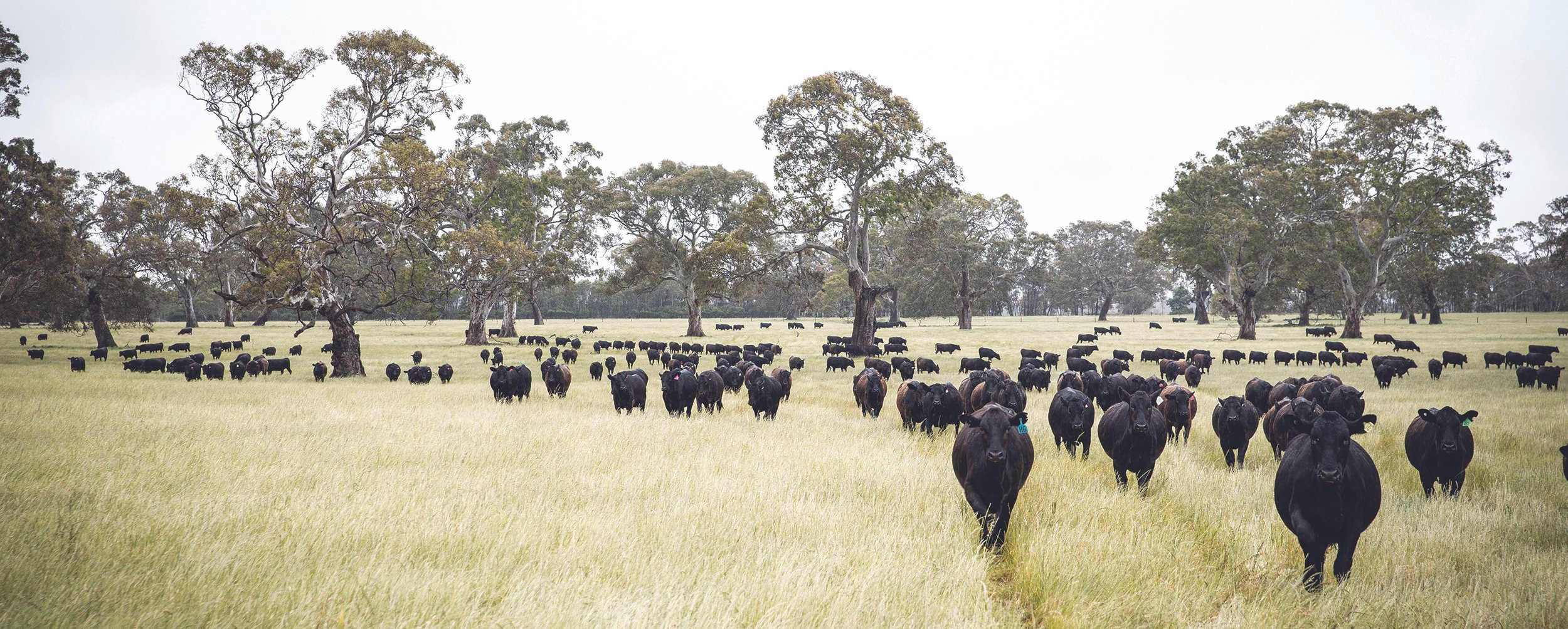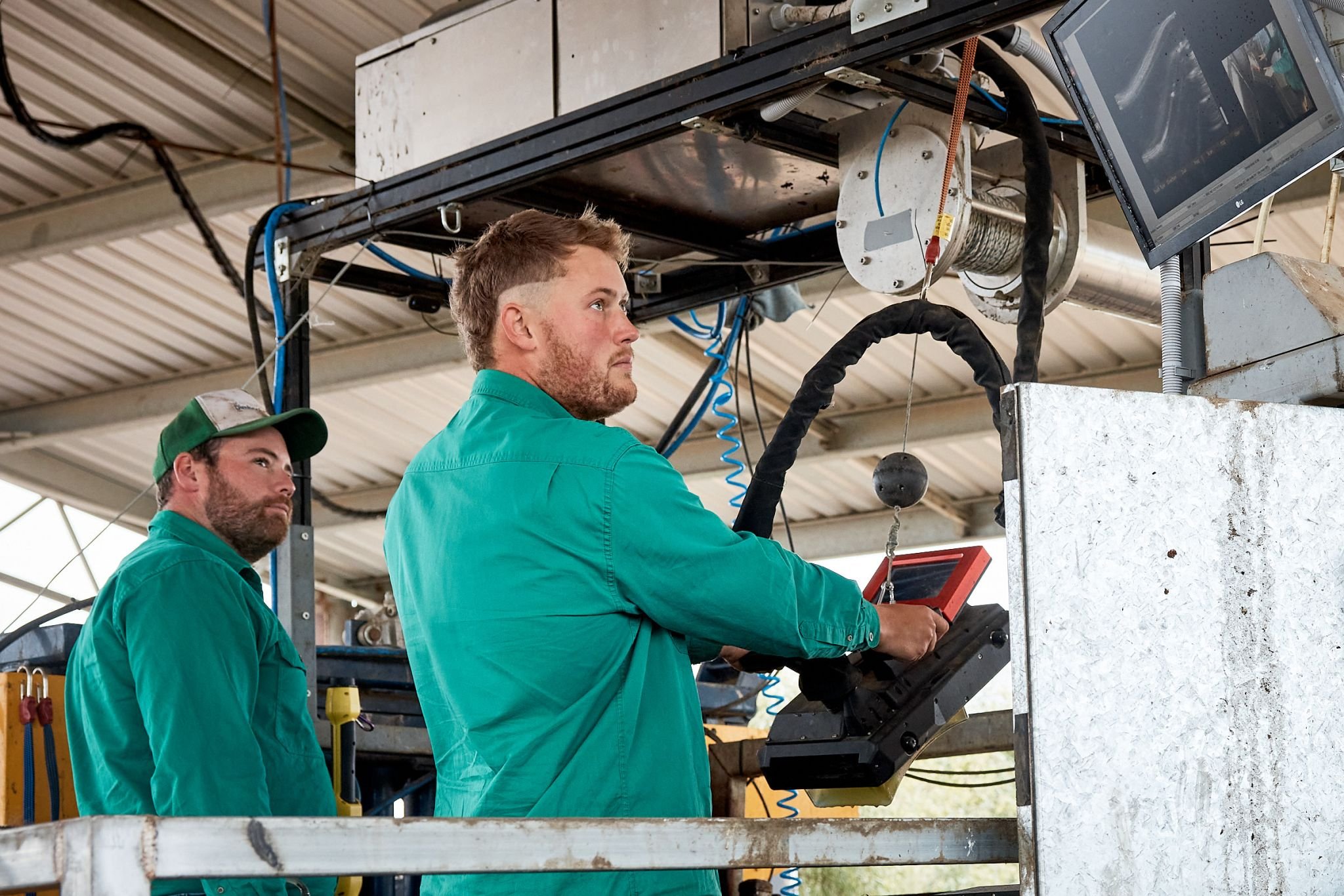Driving innovation that creates value for our business and our sector.

At Harmony, technology is central to how we do business today and, how we continually improve — like any business, we’re always looking to the future.
Whether that’s using tried and tested technology such as IVF to enhance genetics, or the application of AI and machine learning.
CASE STUDY
MEQ Probe
We’re partnering with Ag-Tech start-up, MEQ, using MEQ Probe technology to predict when our animals will reach their maximum marble potential.
At Dimboola Feedlot, we’re using ultrasound hardware – and drawing on AI and machine learning – to better understand marbling propensity and ensure we give our cattle the best opportunity to perform.
The aim is to identify the optimal processing window, balancing cost of gain against marble score values. This will drive efficiencies in our business, maximise resources and minimise environmental impact.
The MEQ Live enables us to gauge marbling propensity while the animal is still alive, in situ, at the feedlot.
When this tool is fully operational, it will revolutionise how we do business at Harmony and support ongoing improvements in the feedlot sector.
“Until now it hasn’t been possible to objectively determine and predict the quality and yield in live animals. MEQ Live is revolutionising how we do business, enabling us to map how feed types affect marbling performance and pick out the best animals for breeding. This technology also creates further sales opportunities by helping us to determine brand segmentation far in advance of traditional grading methods.”
– Anthony Fellows, CEO, Harmony Agriculture & Food Company
CASE STUDY
Food Agility
We’re working with Food Agility CRC and RMIT University to improve health and welfare outcomes using continuous surveillance and monitoring of animals.
The aim is to use visual AI models to enable the early detection of livestock illness and health issues in feedlot environments. The system will also utilise a smart water trough, which will capture an animal’s weight each time it drinks.
Currently, the sector predominantly relies on manual monitoring and management of animal welfare, which is labour-intensive, time-consuming and sometimes inaccurate.
We’re planning to supplement our pen walks with an automated system, giving our livestock team the best tools possible.
“Better handling of animals and improved animal welfare not only lead to high-quality meat products, but also yield economic and operational benefits. We're delighted to be involved in the project and see it as a great opportunity to break new ground in the sector.”
– Patrick Fellows, COO, Harmony Agriculture & Food Company


